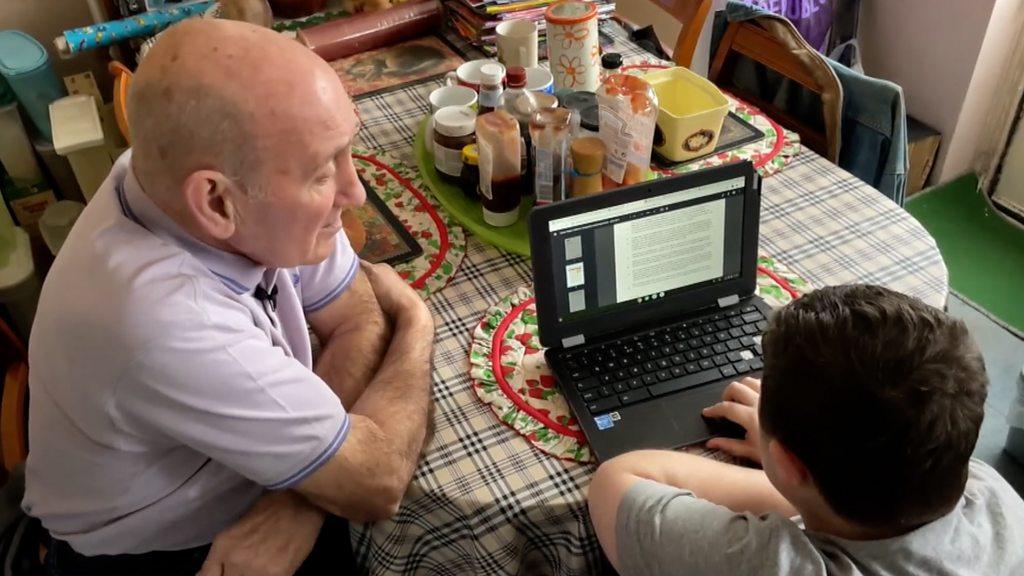Kinship carers strategy to give more support launches in Luton
- Published
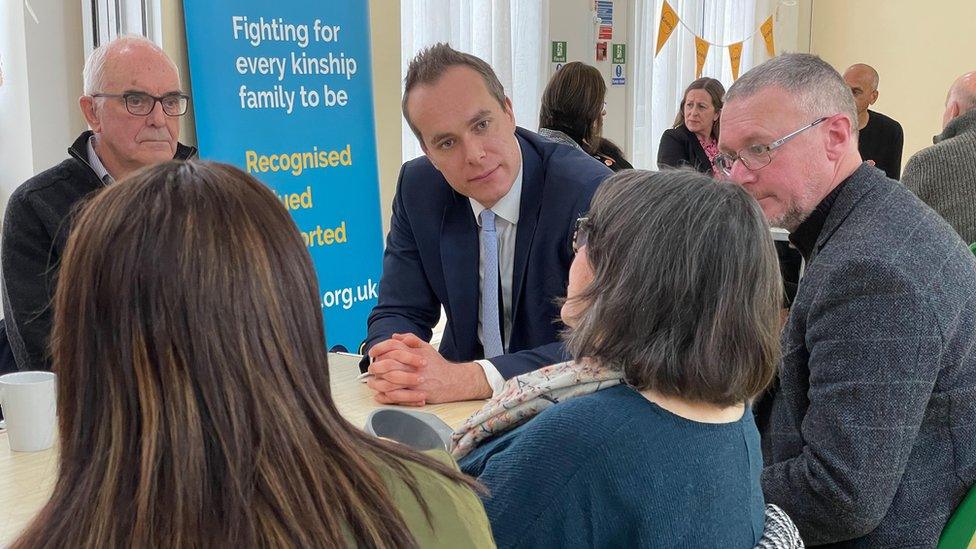
David Johnston said the new strategy would ensure children in kinship care were "given the lives they need to thrive"
The government has launched its first kinship strategy to try offering greater support to carers who provide homes to children in their extended family.
Children and families minister David Johnston discussed the project at a support group in Luton on Thursday.
The strategy will trial giving carers an allowance that matches the one received by foster carers.
They currently receive an allowance between £154-£270 per week, per child.
In eight areas in the UK, kinship carers will receive an allowance that matches that figure, as part of a £20m scheme, external.
The new strategy will also aim to provide additional support in schools to ensure children are recognised as living in kinship families.
Mr Johnston said: "What we're trying to do today is take the first big step to putting kinship carers on a par with people who adopt and foster."
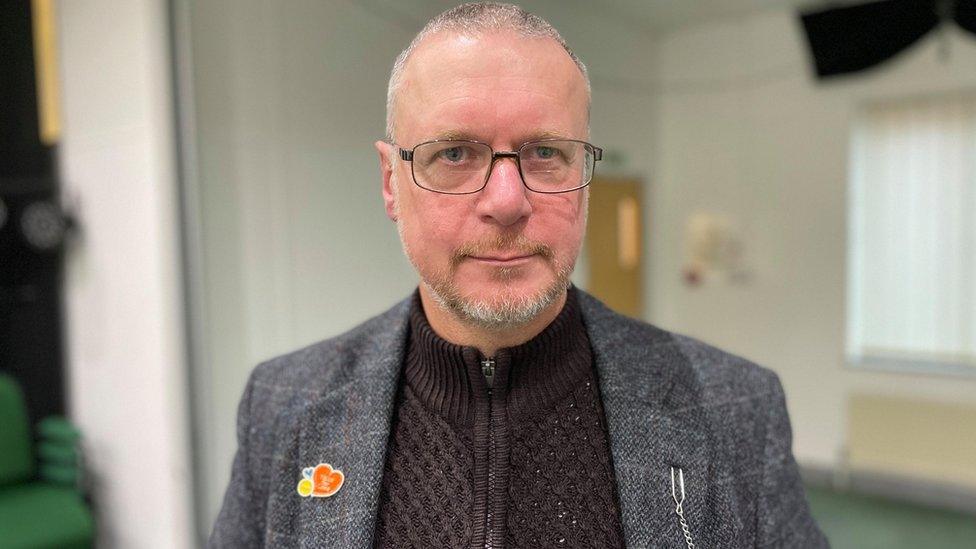
Andrew had previously been a foster carer when he took on a role as a kinship carer for a family member
Andrew, 61, from Watford, began looking after his great nephew three years ago after retiring as a foster carer a few months previous.
He said: "When you become a foster carer, or even an adoptive parent, you choose to do that... in kinship care you pretty much get a call, there's a crisis in your family - you need this child."
Andrew said he was pleased with the new pilot and added: "When you turn up at the supermarket with your trolley you can't say I'm a kinship carer, they'll say pass me your credit card, the bills are still there."
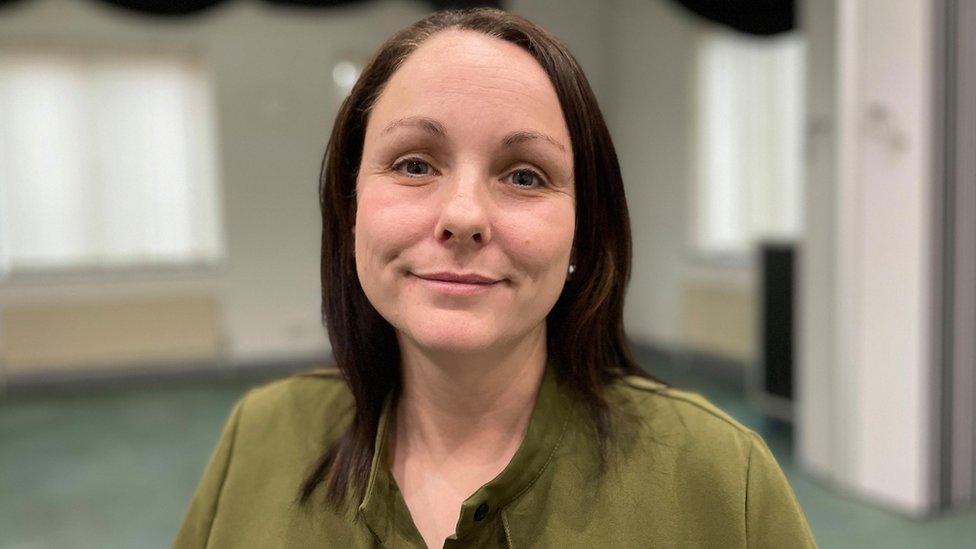
Katie said the job of being a kinship carer was "a lot bigger than I anticipated in the beginning"
Katie, 37, who lives in Essex, took her husband's nephew into care when he was seven - he is now 20.
When the child arrived he had attachment and behavioural issues which she had no experience dealing with, she said.
"It became a shock to the system, I gave up my job, my life tipped upside down and I had a child to care for," she explained.
She said the new strategy was "better late than never".
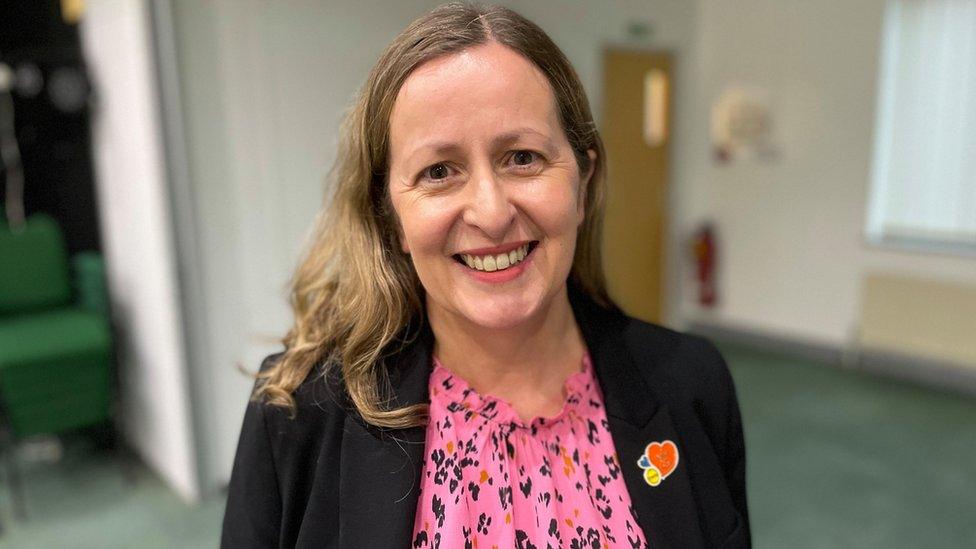
Lucy Peake from the Kinship charity said the new strategy was "kind of a marker in the sand about how things should be built in the future"
Lucy Peake, the chief executive of the Kinship charity, said she would have liked to see more action around employment support - although the government said it was issuing guidance to companies.
She explained "around half of kinship carers are giving up work when they take on the children".
Ms Peake praised some employers, such as Tesco and John Lewis, for offering support and "showing real leadership in this space," but said she would like to see more.
"We want to see a statutory right to paid leave as well," she said.

Follow East of England news on Facebook, external, Instagram, external and X, external. Got a story? Email eastofenglandnews@bbc.co.uk, external or WhatsApp 0800 169 1830
Related topics
- Published2 October 2023
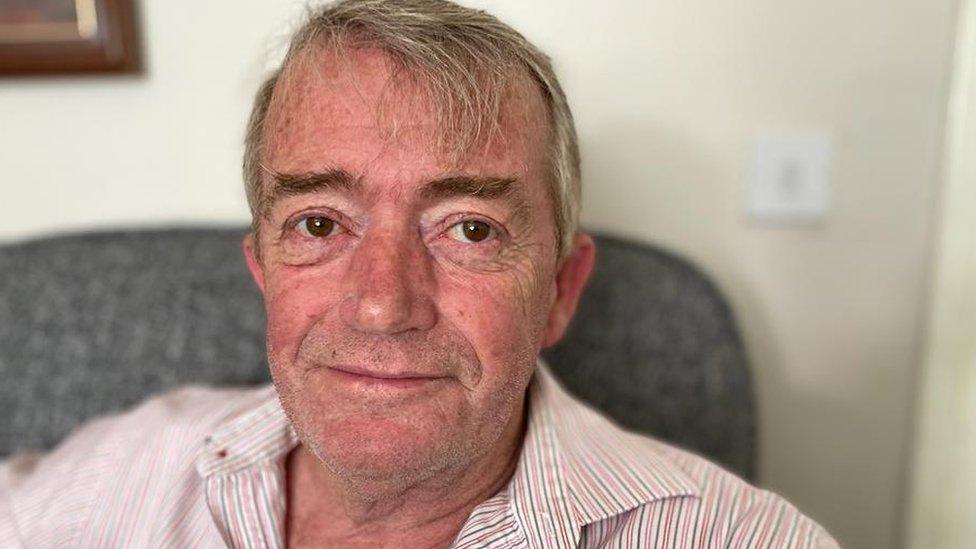
- Published15 June 2023
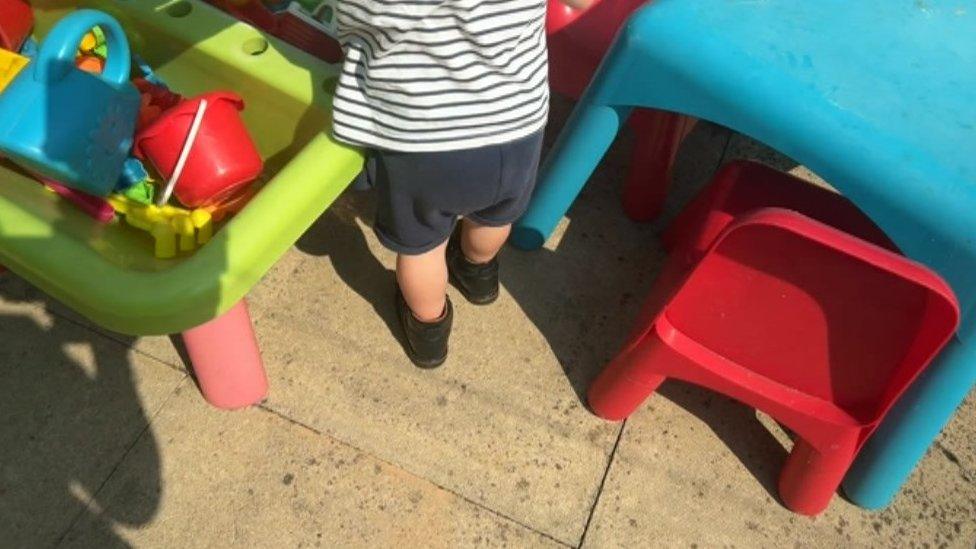
- Published14 December 2022
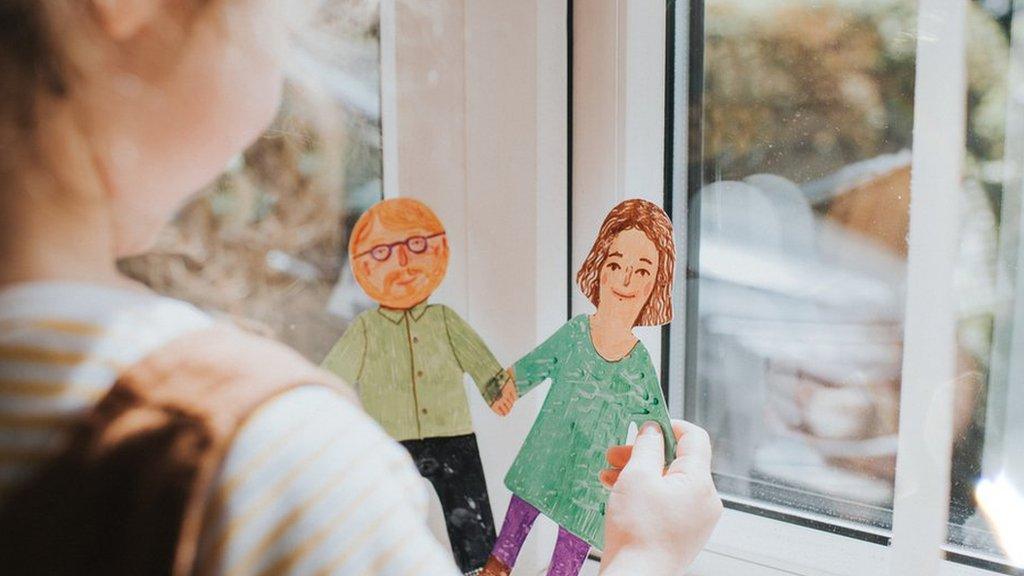
- Published12 February 2022
